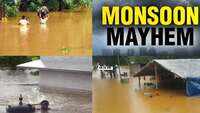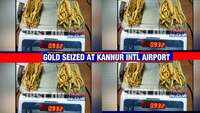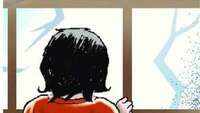
Gurgaon: In order to evaluate how many people have been infected with Covid-19 in the city, a sero survey will be conducted from August 18 in which about 850 people — 500 from rural and 350 from urban — will be tested.
“A sero survey was conducted by the ICMR in 83 districts, including Kurukshetra in Haryana, in May. Similarly, the NCDC conducted a sero survey in Delhi. Haryana has also planned a similar survey in all its districts in collaboration with PGIMER Chandigarh by using IgG Elisa test kits,” said Rajeev Arora, additional chief secretary, health.
In sero surveys that are currently being carried out by several cities, a group of individuals is tested to monitor trends of disease prevalence. The ICMR has recommended the use of the indigenous Elisa test kits for detection of IgG antibodies, which usually start appearing two weeks after recovery and last for several months. While the test may not be useful for detecting acute infection, it indicates an episode of SARS-CoV-2 infection in the past and is useful in understanding the proportion of the population exposed, including asymptomatic cases that may otherwise go undetected.
As part of the exercise, Gurgaon will be divided into 12 rural clusters and four urban clusters. Each urban cluster will be further broken down into four quadrants, each consisting of 22 households. Each rural cluster will be divided into four quadrants of 11 households each. The middle of each quadrant will be marked with its GPS location. A three-member team, comprising a doctor, a health worker and a lab technician, will visit consecutive houses from this point till the required sample size for the location is completed.
Gurgaon chief medical officer Virender Yadav said that people over the age of 18 years can participate in the survey and one supervisor for a set of two clusters will be designated.
The survey will be held in 20 areas. The rural areas include Daultabad, Bajghera village, Bajghera Sector 112, Sarai Sector 109, Badshapur, Palra sub-centre, Palra village, Aklimpur, Pataudi, Sherpur sub-centre village, Sherpur, Inchhapuri, Bhorakalan, Rathiwas sub-centre village, Rathiwas village, Bhudka, Bass, Kharkhera sub-centre, Kharkhera village and Jeetpura.
The urban areas include Basai Enclave, Khandsa, Patel Nagar and Tigra.
A sero survey on a smaller scale was conducted in the city in the first week of July. Of the 360 samples collected to check antibodies, 24 had returned positive. A total of 21,120 tests will be done in Haryana for which each district has been given 10 kits.
After the blood test, participants will be asked details about their personal and family background, household, exposure history and comorbidities, if any. The entire process will take about 15 minutes, officials said.
“A sero survey was conducted by the ICMR in 83 districts, including Kurukshetra in Haryana, in May. Similarly, the NCDC conducted a sero survey in Delhi. Haryana has also planned a similar survey in all its districts in collaboration with PGIMER Chandigarh by using IgG Elisa test kits,” said Rajeev Arora, additional chief secretary, health.
In sero surveys that are currently being carried out by several cities, a group of individuals is tested to monitor trends of disease prevalence. The ICMR has recommended the use of the indigenous Elisa test kits for detection of IgG antibodies, which usually start appearing two weeks after recovery and last for several months. While the test may not be useful for detecting acute infection, it indicates an episode of SARS-CoV-2 infection in the past and is useful in understanding the proportion of the population exposed, including asymptomatic cases that may otherwise go undetected.
As part of the exercise, Gurgaon will be divided into 12 rural clusters and four urban clusters. Each urban cluster will be further broken down into four quadrants, each consisting of 22 households. Each rural cluster will be divided into four quadrants of 11 households each. The middle of each quadrant will be marked with its GPS location. A three-member team, comprising a doctor, a health worker and a lab technician, will visit consecutive houses from this point till the required sample size for the location is completed.
Gurgaon chief medical officer Virender Yadav said that people over the age of 18 years can participate in the survey and one supervisor for a set of two clusters will be designated.
The survey will be held in 20 areas. The rural areas include Daultabad, Bajghera village, Bajghera Sector 112, Sarai Sector 109, Badshapur, Palra sub-centre, Palra village, Aklimpur, Pataudi, Sherpur sub-centre village, Sherpur, Inchhapuri, Bhorakalan, Rathiwas sub-centre village, Rathiwas village, Bhudka, Bass, Kharkhera sub-centre, Kharkhera village and Jeetpura.
The urban areas include Basai Enclave, Khandsa, Patel Nagar and Tigra.
A sero survey on a smaller scale was conducted in the city in the first week of July. Of the 360 samples collected to check antibodies, 24 had returned positive. A total of 21,120 tests will be done in Haryana for which each district has been given 10 kits.
After the blood test, participants will be asked details about their personal and family background, household, exposure history and comorbidities, if any. The entire process will take about 15 minutes, officials said.

Coronavirus outbreak
Trending Topics
LATEST VIDEOS
City
 Intermittent heavy rains, strong winds batter parts of Kerala; 5 killed, over 2,000 shifted to relief camps
Intermittent heavy rains, strong winds batter parts of Kerala; 5 killed, over 2,000 shifted to relief camps  932 grams of gold worth around Rs 53 lakh seized at Kannur International Airport, 2 held
932 grams of gold worth around Rs 53 lakh seized at Kannur International Airport, 2 held  Delhi: Man sexually assaulted 12-year-old, brutalised her with scissors; held
Delhi: Man sexually assaulted 12-year-old, brutalised her with scissors; held  Shocking: Cops attacked by temple priest in UP's Mirzapur
Shocking: Cops attacked by temple priest in UP's Mirzapur
More from TOI
Navbharat Times
Featured Today in Travel
Quick Links
Kerala Coronavirus Helpline NumberHaryana Coronavirus Helpline NumberUP Coronavirus Helpline NumberBareilly NewsBhopal NewsCoronavirus in DelhiCoronavirus in HyderabadCoronavirus in IndiaCoronavirus symptomsCoronavirusRajasthan Coronavirus Helpline NumberAditya ThackerayShiv SenaFire in MumbaiAP Coronavirus Helpline NumberArvind KejriwalJammu Kashmir Coronavirus Helpline NumberSrinagar encounter
Get the app



